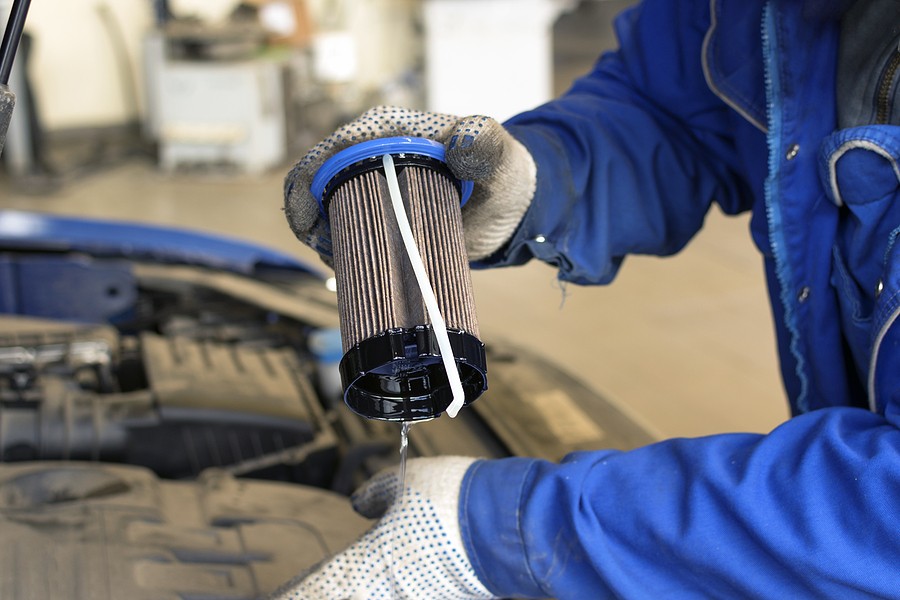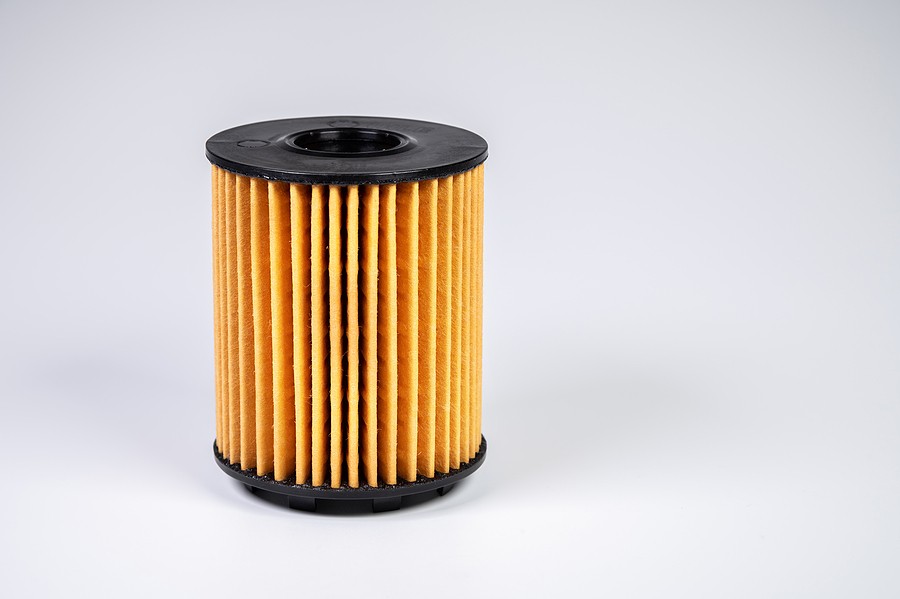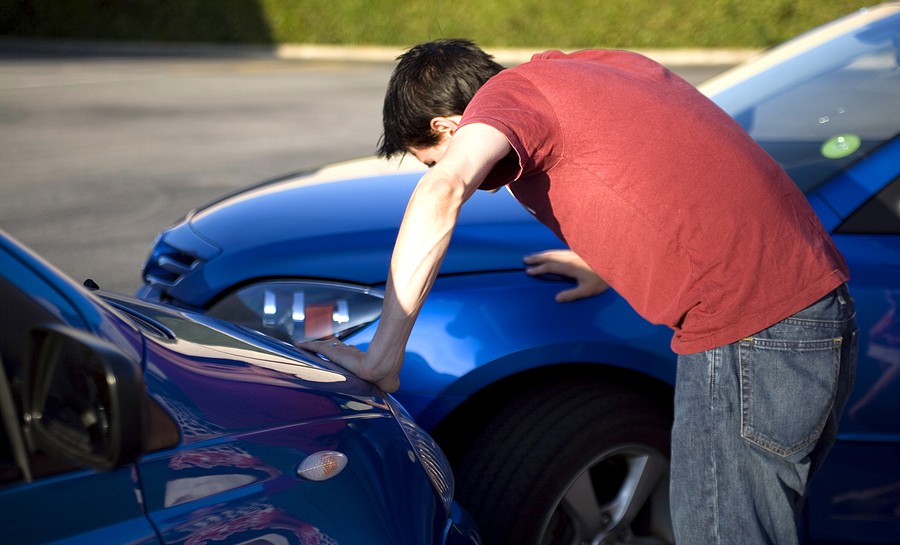The fuel filter is an important part of your car's engine. It's there to help keep the dirt, dust, and other harmful particles from getting into the engine which could lead to costly repairs. There are 3 different types of fuel filters available on the market so it is important that you choose one that will fit your vehicle properly. This article will give you some information about 3 different types of fuel filters with a focus on how to change them for your specific type of automobile. Furthermore, it will touch on why it is important to keep the fuel filter in good working order for your car.

Fuel Filter 101: What is a fuel filter and what does it do
There are many different types of fuel filters available on the market, but what does a fuel filter actually do? A fuel filter is an important part of your car's engine and its job is to keep the dirt, dust, and other harmful particles from getting into the engine. This can help to protect the engine from damage and also improve your gas mileage. It's important to replace your fuel filter every time you change your oil-it's a small price to pay for keeping your car running in top condition!
How does a fuel filter work
To understand how a fuel filter works, one needs to know about the three main types of fuel filters available. It is also important to note that not all cars come with all three types of filters so you need to make sure and check your car's manual or speak to an automotive mechanic if you are not sure what type of fuel filter your car uses.
What are the different types of fuel filters?
There are three different types of fuel filters available on the market: paper, cotton, and synthetic.
Paper fuel filters
Paper fuel filters are the most common type and they are made of pleated paper that is treated with a chemical coating to help prevent the fuel from corroding the filter. They are inexpensive, so they are commonly used on most types of cars.

Cotton fuel filters
Cotton fuel filters are made with a fiberglass shell that is soaked in an oil-based substance to keep it from sticking together. This type of filter doesn't trap as much dirt or debris as paper filters, but the lack of chemicals makes it more expensive. This type of fuel filter is popular on large diesel engines that are used in heavy equipment.
Synthetic filters
Synthetic filters are the most expensive type of fuel filter available, but they do not absorb any moisture so they will not get damp or wet which can cause them to rust. They are usually made with glass or other materials and they come treated with a chemical coating to help prevent the fuel from corroding it. They also do not trap as much dirt and debris, but they are an excellent choice for high-performance cars that use higher octane gas.
How much does the fuel filter cost?
The cost of a fuel filter varies depending on which type you choose. On average, paper fuel filters range from $3 to $10 while cotton and synthetic options are more expensive at around $20 each.
How often should I change my fuel filter?
It is recommended that you change your fuel filter every time you change your oil (every 3000-5000 miles). A dirty fuel filter will not allow your engine to perform at its best.
Fuel Filter 101: How to choose the right fuel filter for your car?
1. Check your owner's manual for the recommended size of the fuel filter
2. Check your owner's manual to make sure your specific make and model will require a paper, cotton or synthetic fuel filter-some cars will use one of these three types whereas other models can use a different type of fuel filter
3. Make sure you read customer reviews on items before you buy them so you have a good idea of what other people think about the product. This will help you to make sure that you are getting a quality fuel filter for your needs
4. It's always a good idea to check local parts stores first to see if they have the fuel filter in stock before placing an online order, especially if you need it right away
5. Car parts stores will typically offer free installation on most fuel filers, so you can save money by doing this yourself if you are comfortable with basic tools
6. You can find replacement fuel filters at most car parts or auto supply stores as well as much local retail stores-just make sure they have the right size for your vehicle.
Fuel Filter 101: How to install a fuel filter?
Every 15,000 miles or so, most cars will require a fuel filter change. However, some brands and models of cars may need more frequent filter changes than others. Check your owner's manual for information on when your car requires fuel filter changes. If your engine is cutting off, you may have a dirty or clogged fuel filter that needs to be replaced. To change the fuel filter, shut off your engine and release all of the gas pressure by unscrewing the gas cap on your vehicle's regular gas tank. Then follow these steps:
1. Make sure you have a clean work area so that dirt or debris doesn't get into the engine of your car
2. Follow the directions on your owner's manual to find out where your fuel filter is located and how it should be installed-there is almost always a removable cap that will allow you to access the fuel filter
3. Take out the old fuel filter and make sure all dirt or debris is cleaned from your car's engine
4. Get ready to install the new fuel filter-you should be able to find installation instructions on the package of your new fuel filter or in your owner's manual. Turn your car on and turning the heater up to its highest setting-this will help warm up the gas in your engine and make it easier for you to change your fuel filter
5. Slowly unscrew the old fuel filter until all of the gas is drained out-be very careful when doing this because there can be a lot of gas in the fuel filter and this can be very dangerous
6. Replace your old fuel filter with the new one and make sure you tighten it as much as possible, but don't use too much pressure or you may damage your car's fuel filter
7. Refill your vehicle's gas tank-be careful not to spill any gas when you do this
8. Park your car somewhere that is level to prevent too much fuel from flowing out and then restart it to test the new fuel filter
9. Repeat the above steps if your engine cuts off again, but replace the fuel filter with a different one. Sometimes different brands of fuel filters will have fitting issues with your car, so you may need to try another brand and see if it helps.

How to extend the lifetime of your fuel filter?
One way to help extend the lifetime of your fuel filter is to make sure that you change it at the recommended intervals. This may vary depending on the make and model of your car, so it's important to check your owner's manual. You should also try to keep the engine clean by regularly dusting or vacuuming it-this will help to prevent dirt and debris from getting into the fuel filter and clogging it up. If you do experience problems with your car cutting off, it may be a sign that the fuel filter needs to be replaced.
Symptoms of a clogged fuel filter
When the fuel filter gets clogged, your vehicle will grab your attention with several symptoms. Whenever you notice any of the following symptoms, you must take the issue seriously and replace the filter. Otherwise, don't be surprised to deal with significant issues and high maintenance costs.
1. Your car is not starting
If your car is not starting, it may be because the fuel filter is clogged. This can be caused by a variety of things, such as dirt or debris getting into the engine, or old age. If you think that the fuel filter may be clogged, you can try replacing it with a new one to see if that fixes the problem. You can find replacement fuel filters at most car parts stores.
2. Engine is cutting off while you are driving
a bad fuel filter can cause your engine to cut off while driving. This can be extremely dangerous if it happens while you are driving on the road and could result in a car accident. If you notice your engine is cutting off, check to make sure that your fuel filter isn't clogged-if it is, try replacing it with a new one.
3. You are having trouble accelerating or maintaining speed
A clogged fuel filter can also prevent your car from accelerating or maintaining speed. this is because a clogged fuel filter allows very small amounts of fuel to get to the engine. As a result, the engine won't generate sufficient power to accelerate or maintain speed. You can try replacing the fuel filter to see if this helps with your engine's performance.
4. Gas mileage is poor
A clogged fuel filter will not allow enough gas into your car's engine, which means that it won't run properly. If you are noticing that your gas mileage is suffering because of this, you should make sure that your fuel filter is clean-if it isn't, replace it with a new one.

5. Misfiring engine
A clogged fuel filter can cause your car to misfire because gas isn't getting into the engine properly. This will result in the engine running very roughly and inconsistently. If you notice that your car is misfiring, you should check to make sure that the fuel filter isn't clogged. If it is, replace it with a new one.
6. Engine running roughly
If your engine's performance is poor and it feels like it's running roughly, there may be debris inside of the engine blocking fuel from entering the engine completely or causing damage to other components. You can try cleaning out the debris and replacing any parts that were damaged as a result of it using compressed air to clean out your car's intake manifold if you don't know how to do this otherwise.
7. Black smoke coming from your engine
This could mean that there is debris inside of your engine blocking fuel from entering the engine properly. You can try cleaning this debris out with compressed air, although if you are unsure how to do this yourself, it may be best to have a professional service technician do it for you instead.
8. Low gas mileage
If your car isn't getting enough gas into the engine, it will result in poor gas mileage. If you think that your fuel filter could be clogged, replace it with a new one to see if this helps fix the problem.
9. Difficulty starting your car
A bad fuel filter can make it difficult for your car to start-this is because very little or no gas is getting into the engine. If your car struggles to start, check to see if the fuel filter is clogged-if it is, replace it with a new one.
10. Knocking sound coming from under your hood
A bad fuel filter can cause a knocking sound to come from under your hood when you start and stop your car. This occurs because of the pressure that gets released when you start your car, although if the knocking sound doesn't stop after a few minutes, you should take your car to a mechanic.

11. Loss of engine power
If your engine is losing some or all of its power, there could be debris in your engine blocking gas from entering it completely or causing damage to other components. You should check the fuel filter as a first step if it is damaged or clogged, replace it with a new one.
Fuel filter 101: Conclusion
The fuel filter is a crucial part of your car's engine and needs to be replaced every 15,000 miles or so. It's important that you know how to choose the right fuel filter for your specific make and model of car and also how to install it properly. If you're not comfortable doing this yourself, most local parts stores will offer free installation on fuel filters.



